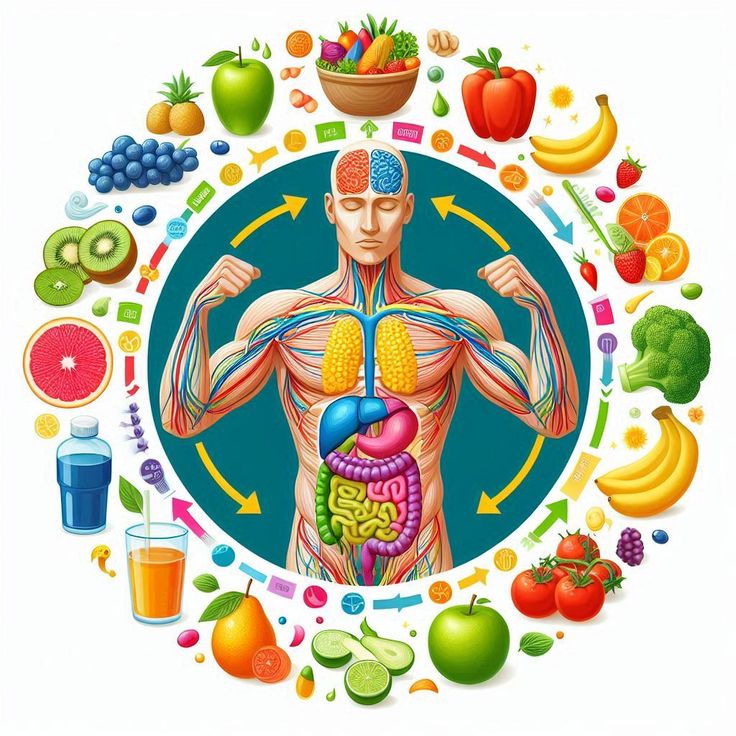In today’s fast-paced world, the connection between diet and mental health is more relevant than ever. While we often focus on food for physical health, it’s essential to understand how what we eat also influences our mood, emotional stability, and mental clarity. This deep connection is the heart of what many call “Mood Food.”
In this blog, we’ll explore how food impacts your brain chemistry, the best foods for boosting your mood, what to avoid, and how to build an emotional wellness diet.

What Is Mood Food?
Mood food refers to the idea that the nutrients and compounds in our daily diet can directly affect the brain’s chemistry, influencing how we feel emotionally and mentally. Everything from your morning coffee to your late-night snacks has a role in shaping your mood.
The Science Behind Mood and Food
The brain needs a constant supply of fuel, and that fuel comes from the foods you eat. When you consume nutrient-rich foods, your brain receives the essential vitamins, minerals, antioxidants, and fatty acids it needs to function optimally.
Neurotransmitters like serotonin, dopamine, and norepinephrine—which affect your mood—are directly influenced by the food you consume. For instance, about 90% of serotonin is produced in the gut, showing a strong link between gut health and mental health.
The Gut-Brain Connection
Your gut is often referred to as the “second brain” because it houses an extensive network of neurons and is home to trillions of microbes. These gut bacteria play a significant role in producing neurotransmitters, regulating inflammation, and even communicating with the brain through the gut-brain axis.
How Gut Health Affects Mood
- Healthy gut = stable mood
- Imbalanced gut = anxiety, depression, mood swings
Consuming a diet rich in fiber, fermented foods, and prebiotics helps maintain a healthy microbiome, leading to better mental wellness.
How Nutrients Influence Brain Chemistry
Let’s look at specific nutrients and their effects on mental health:
1. Omega-3 Fatty Acids
- Found in: Salmon, chia seeds, walnuts
- Benefits: Reduce depression, enhance cognitive function
2. Vitamin B Complex
- Found in: Leafy greens, legumes, eggs
- Benefits: Helps produce energy and stabilize mood
3. Magnesium
- Found in: Dark chocolate, almonds, spinach
- Benefits: Reduces anxiety, improves sleep, calms the nervous system
4. Tryptophan
- Found in: Turkey, milk, bananas
- Benefits: Helps produce serotonin (the happiness hormone)
5. Iron
- Found in: Red meat, spinach, beans
- Benefits: Prevents fatigue, brain fog, and irritability
6. Probiotics
- Found in: Yogurt, kimchi, kefir
- Benefits: Support gut health, reduce symptoms of anxiety and depression
Mood-Boosting Foods to Add to Your Diet
Let’s explore some specific foods that enhance emotional well-being:
1. Dark Chocolate
A natural mood enhancer, dark chocolate contains compounds like theobromine and phenylethylamine which promote serotonin release.
2. Bananas
They are rich in vitamin B6 and tryptophan, which help the brain produce serotonin.
3. Oats
A complex carbohydrate that helps stabilize blood sugar and boost serotonin.
4. Berries
Rich in antioxidants and vitamin C, berries fight inflammation and oxidative stress, which are linked to mood disorders.
5. Avocados
Packed with healthy fats, they help build brain cells and reduce cortisol (stress hormone).
6. Leafy Greens
Spinach, kale, and Swiss chard are loaded with folate, which aids in dopamine production.
7. Fatty Fish
Salmon, sardines, and tuna are high in omega-3s, which help regulate dopamine and serotonin levels.
Foods That Harm Your Mood
Just as some foods lift your spirits, others can drag them down.
1. Refined Sugar
High sugar consumption leads to energy crashes, mood swings, and even increases the risk of depression.
2. Processed Foods
Packed with preservatives, additives, and unhealthy fats that can affect the gut microbiome and brain function.
3. Caffeine Overload
While caffeine can offer a quick mental boost, excessive amounts can cause anxiety, irritability, and insomnia.
4. Alcohol
It disrupts brain chemistry and lowers serotonin levels, often worsening depression and anxiety.
5. Fried Foods
These contain trans fats, which are linked to depression and poor cognitive function.

Creating a Mood-Friendly Meal Plan
To consistently feel mentally balanced, it’s essential to structure your meals around foods that support emotional wellness.
Sample Day for Mood-Boosting Nutrition:
🥣 Breakfast:
- Oatmeal topped with berries and chia seeds
- A glass of probiotic-rich yogurt smoothie
🥗 Lunch:
- Grilled salmon with quinoa and steamed spinach
- Mixed greens salad with avocado and olive oil
🥜 Snack:
- A handful of almonds and dark chocolate square
🍲 Dinner:
- Lentil soup with whole grain toast
- Steamed broccoli and a banana
☕ Optional:
- Herbal tea with a pinch of turmeric before bed
Emotional Eating vs. Mindful Eating
Many people eat based on emotions—stress, sadness, or boredom—rather than hunger.
Signs of Emotional Eating:
- Craving comfort foods when upset
- Eating rapidly without noticing taste or texture
- Feeling guilty after meals
How to Practice Mindful Eating:
- Eat slowly and savor each bite
- Recognize true hunger vs. emotional triggers
- Keep a food and mood journal
Mindful eating helps you develop a better relationship with food, making it a tool for healing rather than harm.
Special Diets and Mood: Do They Work?
Certain popular diets are associated with improved mood and mental health.
1. Mediterranean Diet
Rich in olive oil, fish, legumes, fruits, and vegetables
✅ Proven to reduce the risk of depression
2. Plant-Based Diet
Eliminates animal fats, focuses on fiber-rich vegetables and fruits
✅ Increases energy, supports gut health
3. Ketogenic Diet
High in fats and very low in carbs
⚠️ Can improve focus for some but may cause mood dips during carb withdrawal
Supplements and Mental Health
If you’re unable to get all nutrients from food, supplements can help:
- Omega-3 capsules
- Vitamin D
- Probiotic capsules
- Magnesium glycinate
Always consult a healthcare professional before starting supplements.
Hydration and Mood
Dehydration can cause:
- Fatigue
- Brain fog
- Irritability
💧 Aim for 2-3 liters of water daily. Herbal teas and fruit-infused water can add variety.
Lifestyle Factors That Complement Mood Food
Even the healthiest diet needs support from daily lifestyle habits:
1. Exercise
Boosts endorphins and supports brain health.
2. Sleep
Lack of sleep increases cravings for unhealthy foods and worsens mood.
3. Sunlight
A natural source of vitamin D, essential for a happy mood.
4. Social Connections
Eating healthy meals with friends or family can enhance emotional bonding and joy.
Mood Disorders and Diet Therapy
While food is not a standalone cure for depression or anxiety, it’s a powerful complementary tool.
Nutrition Therapy Can Help:
- Reduce symptoms of mild to moderate depression
- Support medication and therapy outcomes
- Empower patients to take control of their mental wellness
A registered dietitian or nutritionist can guide individuals to tailor food for mood support.
Final Thoughts: Let Food Be Your Mood Medicine
Food is more than fuel; it’s medicine for the mind. By making smart food choices, you can nourish your brain, uplift your mood, and reclaim emotional balance.
Instead of reaching for processed snacks during a low moment, choose a banana, a bowl of berries, or a glass of kefir. Over time, these tiny dietary shifts create massive emotional transformation.
FAQs on Mood Food
Q1: Can food cure depression?
No, food alone cannot cure depression but it can significantly support mental health when combined with other treatments.
Q2: How quickly does food affect mood?
Some foods (like sugar or caffeine) impact mood within minutes. Others, like omega-3s, show long-term effects over weeks.
Q3: Are cheat meals bad for mental health?
Occasional indulgences are okay. What matters most is consistency in overall dietary habits.
Q4: What are the best snacks for mental clarity?
Nuts, yogurt, dark chocolate, and fruit are excellent for a brain-boosting snack.
Takeaway: Eat Well, Feel Well
Your mood is not just in your mind—it’s on your plate. By embracing a nutrient-rich, mood-friendly diet, you’re not just feeding your body—you’re feeding your happiness.
So next time you plan your meal, ask yourself: “Will this nourish my mind as well as my body?” Because when you eat better, you feel better. And that’s the real power of mood food.
